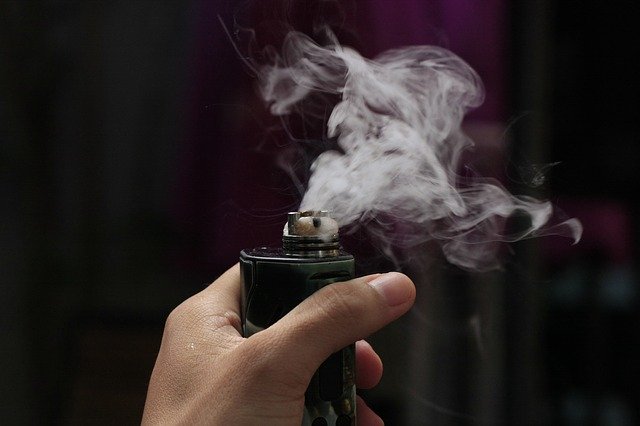If you follow our blog or read the news, then you’re already familiar with the vaping ban Governor Whitmer attempted to put in place after declaring vaping a public health emergency. The ban, which made the use of any flavored vaping products and accessories illegal in Michigan, was the first of its kind in the U.S. and was aimed primarily at saving the lives of teens. The ban also prohibited e-cigarette companies from “misleading marketing of vaping products”, including the use of words like “clear,” “safe” or “healthy” in descriptions of their products. But it was not to be…

A Judge blocked the vaping ban after a business sued the state.
Two separate lawsuits were brought against the state as a result of the ban, one of which was filed by Saginaw based A Clean Cigarette. The business, which has three locations in and around Lansing, owns a total of 19 stores around the state. Courtesy of the ban, the owners were preparing to close 9 of those stores when their lawsuit got them the desired result. Michigan Court of Claims Judge Cynthia Stephens issued a preliminary injunction blocking the state’s ban on flavored vaping products just two weeks after it was issued.
Many businesses were happy, but the Governor was upset.
According to Judge Stephens, by waiting months to implement the ban after declaring the emergency, Gov. Whitmer and her staff “undercut their own assertions of an emergency.”
“Despite the availability of the information, DHHS waited for eight months … before declaring an emergency.” Stephens explained in her ruling. The attorney representing the owners of A Clean Cigarette went on record to say that he believed the ruling was fair and reasonable, but Governor Whitmer parried by claiming that it “sets a dangerous precedent when a court second-guesses the expert judgment of public health officials dealing with a crisis.”
The Governor went to the Supreme Court to address the issue.
Governor Whitmer appealed the ruling, but the Court of Appeals denied her requests to reinstate the ban. She then attempted to force the issue by requesting that the Michigan Supreme Court hear the case and overturn the Claims Court ruling. “This ruling cannot be allowed to stand, especially in the state that experienced the Flint Water Crisis,” Whitmer explained. “I ask the Supreme Court to take immediate action.” However, the Supreme Court refused to reintroduce the ban.
So how does Michigan stand on the issue of vaping right now?
On December 20, 2019, President Trump signed legislation that amended the Federal Food, Drug, and Cosmetic Act, and raised the federal minimum age for the sale of tobacco products from 18 to 21 years, effective immediately. The federal government also recently announced that it is banning the sale of all non-tobacco and menthol e-cigarette flavors in so-called ‘closed system’ products, which includes most flavored e-cigarette and vaping products. Many Michigan businesses have already begun enforcing the law, but as many of the unhappy vape product sellers are now pointing out – the federal government is doing Governor Whitmer’s work for her. And they’re not happy about it. What do you think? Tell us on our Facebook page.